
Tomáš Garrigue Masaryk was a Czechoslovak politician, statesman, sociologist, and philosopher. Until 1914, he advocated restructuring the Austro-Hungarian Empire into a federal state. With the help of the Allied Powers, Masaryk gained independence for a Czechoslovak Republic as World War I ended in 1918. He co-founded Czechoslovakia together with Milan Rastislav Štefánik and Edvard Beneš and served as its first president.
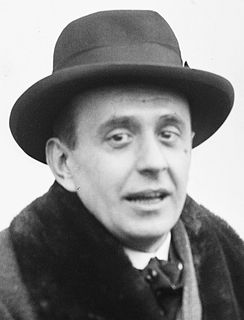
Jan Garrigue Masaryk was a Czechoslovak diplomat and politician who served as the Foreign Minister of Czechoslovakia from 1940 to 1948. American journalist John Gunther described Masaryk as "a brave, honest, turbulent, and impulsive man".
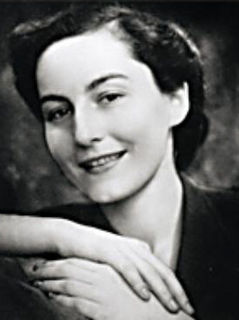
Lilian Vera Rolfe, was an Allied secret agent in the Second World War.

On 27 May 1942 in Prague, Reinhard Heydrich – the commander of the Reich Security Main Office (RSHA), acting governor of the Protectorate of Bohemia and Moravia, and a principal architect of the Holocaust – was attacked and wounded in an assassination attempt by Czechoslovak resistance operatives Jozef Gabčík and Jan Kubiš. Heydrich died of his wounds on 4 June 1942. He was one of the most powerful men in Nazi Germany and an important figure in the rise of Adolf Hitler.

Jan Opletal was a student of the Medical Faculty of the Charles University in Prague, who was shot at a Czechoslovak Independence Day rally on 28 October 1939. He was severely injured at this anti-Nazi demonstration against the German occupation of Czechoslovakia and died two weeks later.

Masaryk University (MU) is the second largest university in the Czech Republic, a member of the Compostela Group and the Utrecht Network. Founded in 1919 in Brno as the second Czech university, it now consists of ten faculties and 35,115 students. It is named after Tomáš Garrigue Masaryk, the first president of an independent Czechoslovakia as well as the leader of the movement for a second Czech university.

Karl Hermann Frank was a prominent Sudeten German Nazi official in the Protectorate of Bohemia and Moravia prior to and during World War II. Attaining the rank of Obergruppenführer, he was in command of the Nazi police apparatus in the Protectorate, including the Gestapo, the SD, and the Kripo. After the war, Frank was tried, convicted and executed by hanging for his role in organizing the massacres of the people of the Czech villages of Lidice and Ležáky.

Alois Eliáš was a Czech general and politician. He served as prime minister of the puppet government of the German-occupied Protectorate of Bohemia and Moravia from 27 April 1939 to 27 September 1941 but maintained contact with the government-in-exile. Because of his participation in the anti-Nazi resistance, he was the only head of government who was murdered by the Nazis during World War II.

Emanuel Moravec was a Czech army officer and writer who served as the collaborationist Minister of Education of the Protectorate of Bohemia and Moravia between 1942 and 1945. He was also chair of the Board of Trustees for the Education of Youth, a fascist youth organisation in the protectorate.

Milada Horáková was a Czech politician and a member of underground resistance movement during World War II. She was a victim of judicial murder, convicted and executed by the nation's Communist Party on fabricated charges of conspiracy and treason. Many prominent figures in the West, including Albert Einstein, Vincent Auriol and Winston Churchill, petitioned for her life.

Alois Rašín was a Czech and Czechoslovakian politician, economist, one of the founders of Czechoslovakia and first Ministry for Finance. He was the author of the first law of Czechoslovakia and creator of the country's currency, the Czechoslovak koruna. Rašín was a representative of conservative liberalism and was mortally wounded in assassination for being viewed as a head of the nation's capitalism.

Resistance to the German occupation of the Protectorate of Bohemia and Moravia during World War II began after the occupation of the rest of Czechoslovakia and the formation of the protectorate on 15 March 1939. German policy deterred acts of resistance and annihilated organizations of resistance. In the early days of the war, the Czech population participated in boycotts of public transport and large-scale demonstrations. Later on, armed communist partisan groups participated in sabotage and skirmishes with German police forces. The most well-known act of resistance was the assassination of Reinhard Heydrich. Resistance culminated in the so-called Prague uprising of May 1945; with Allied armies approaching, about 30,000 Czechs seized weapons. Four days of bloody street fighting ensued before the Soviet Red Army entered the nearly liberated city.

Czech–German relations date back some 1,500 years. Today, the two countries share 815 km of common borders. The Czech Republic has an embassy in Berlin, 3 general consulates, and 6 honorary consulates. Germany has an embassy in Prague. Both countries are full members of NATO and of the European Union.

Edvard Beneš was a Czech politician and statesman who served as the president of Czechoslovakia from 1935 to 1938 and again from 1945 to 1948. He also led the Czechoslovak government-in-exile 1939 to 1945, during World War II.
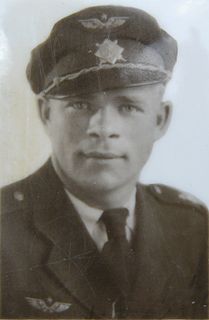
Josef Bryks, MBE, was a Czechoslovak cavalryman, fighter pilot, prisoner of war and political prisoner.
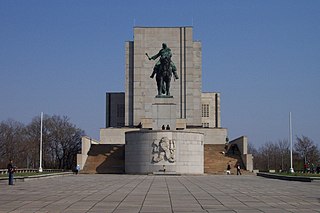
The National Monument on top of Vítkov Hill in Prague's Žižkov district is one of the most important buildings related to the development of Czechoslovak/Czech statehood.
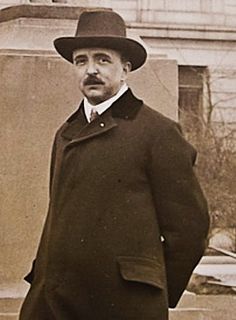
Vojtěch Preissig was a Czech typographer, printmaker, designer, illustrator, painter and teacher. He studied in Prague at the School of Applied Industrial Art from 1892 to 1896 and at the School of Decorative Architecture from 1897 to 1898.

Hans Maršálek was an Austrian typesetter, political activist, detective, and historian. A devout socialist and active in the resistance, he was arrested by the Nazis and imprisoned in the Mauthausen concentration camp. After the war, he joined the Austrian political police and was instrumental in tracking down and convicting numerous Nazi criminals. He also became the main chronicler of the camp's history, helped establish the Mauthausen Memorial Museum, and published several books.
Arthur Steele was a British soldier who joined Special Operations Executive (SOE) to operate in occupied France during the Second World War as a wireless operator carrying out sabotage and spying missions until he was taken prisoner. He was tortured for information unsuccessfully by the Gestapo and subsequently killed by the SS.
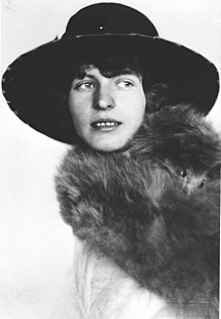
Marianne Golz-Goldlust was an Austrian-born opera singer and actress. She maintained a successful career in eastern Europe during the early 1920s, later moving to Prague, Czechoslovakia, and becoming a theatre critic. She married Jewish journalist Hans Goldlust in 1929. When Hans was arrested by Nazis in 1939, Golz-Goldlust secured his release, helping him and his other relatives escape to England. She stayed in Prague to help the Resistance, a dangerous task which she accomplished by hiding Jewish refugees, smuggling financial resources and information across borders, recruiting new resistance members, and holding resistance meetings at her home.




















